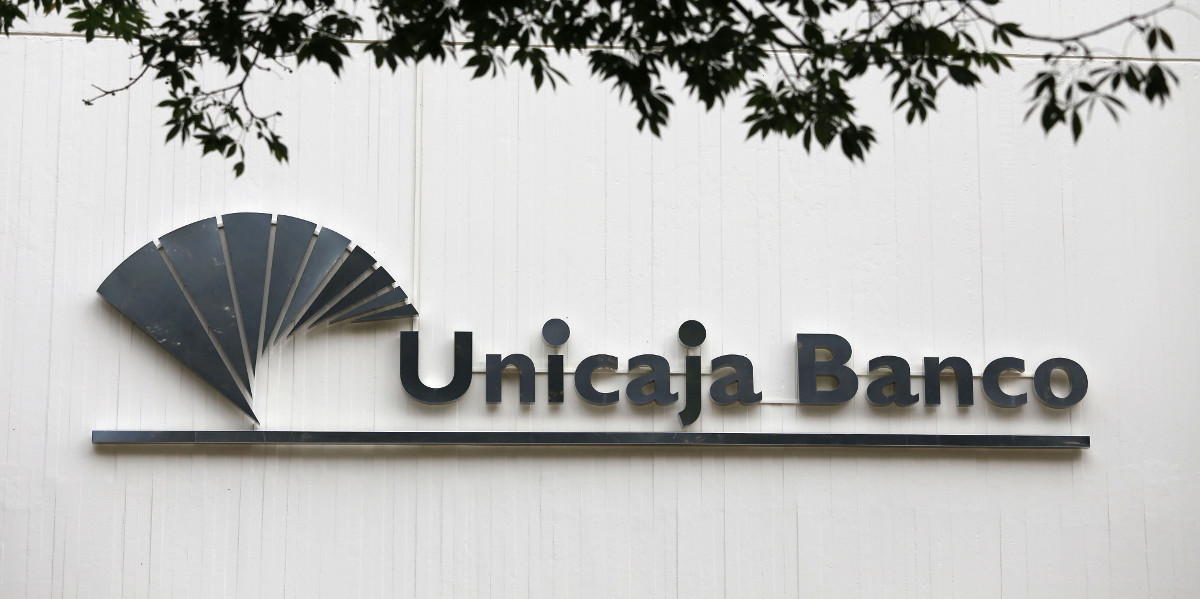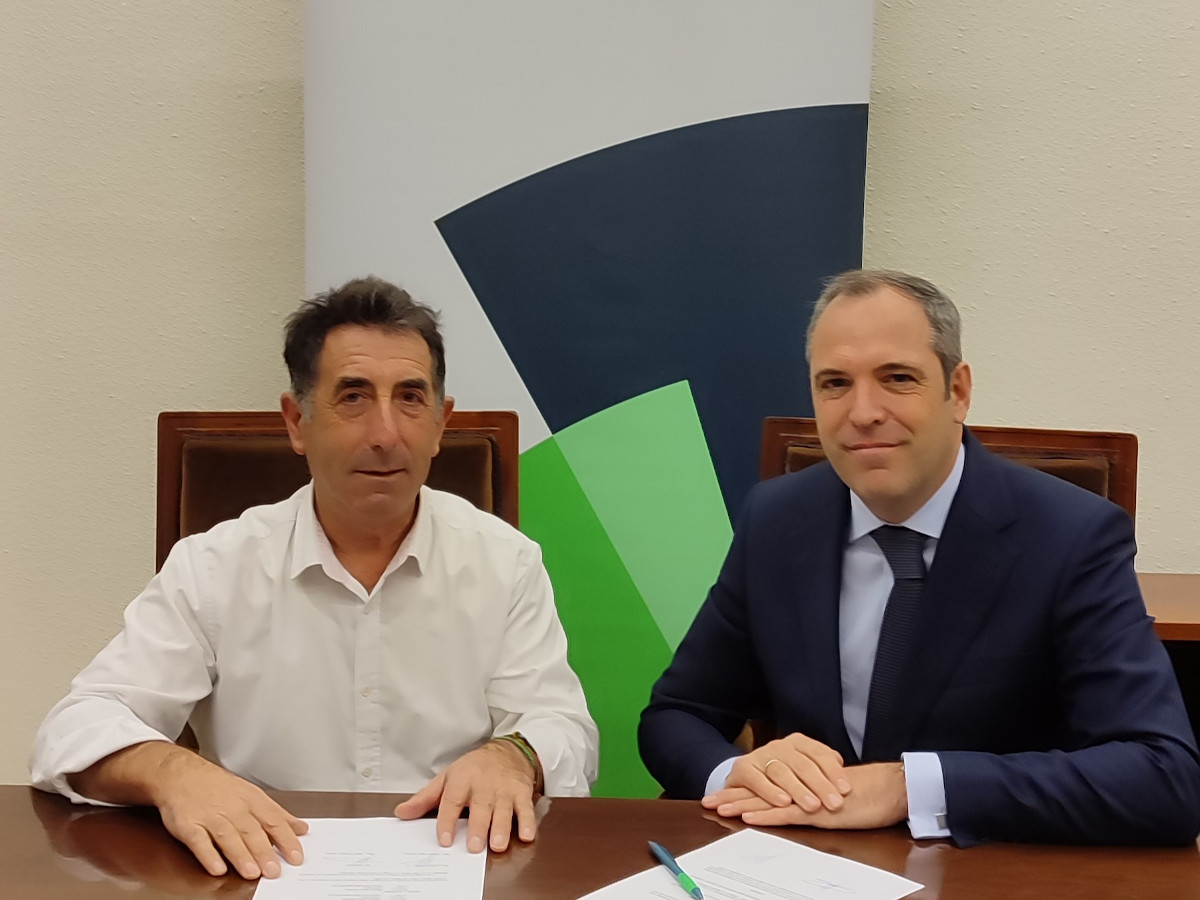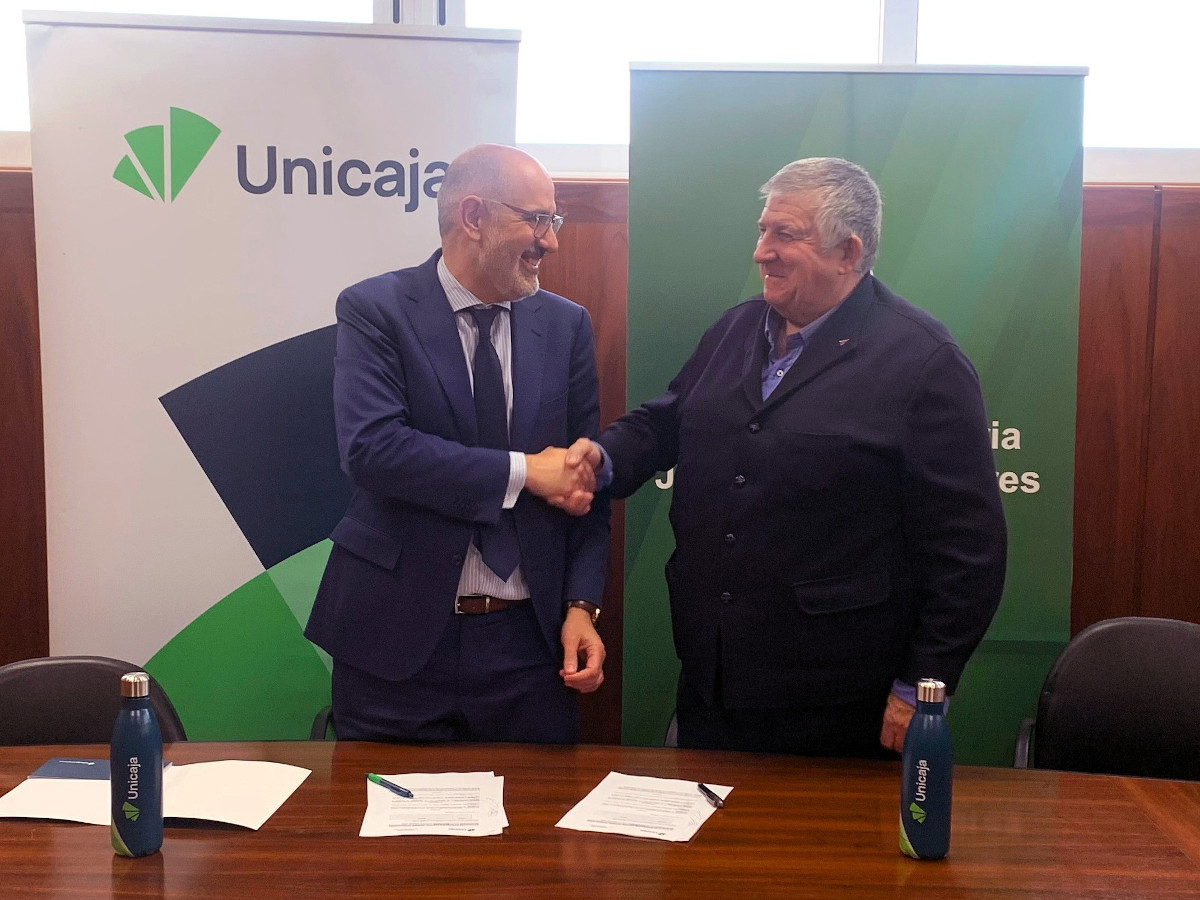Grupo Unicaja Banco posts in 2020 a net profit of €78 million, after booking extraordinary provisions for €200 million to cover the potential economic impact of the pandemic. Excluding these extraordinary provisions, the year results would have reached €218 million, up 26.6% on 2019 results. The key highlights of Unicaja Banco results in the year have been: i) the capacity to generate profit –which allows mitigating the impacts of the COVID-19-; ii) the growth in the business activity; iii) the ongoing decrease in operating expenses; iv) the decrease in non-productive assets, reinforcing the high coverage levels; and v) the high solvency and liquidity ratios, along with the strengthening of the capital ratios, which confirm the bank’s strength to face the current situation, and to continue providing support to its customer in the current difficult context.
Unicaja Banco has been able to revert the negative effects derived from the activity stalling, caused by the declaration of the state of alarm in the second quarter, on its core revenues (net interest income + fees), which grows by 8.9% in 3Q and by 3.7% in 4Q, placing the y-o-y growth in 0.2%. The said improvement is seen both in the net interest income (+9.2% in 3Q and +1.1% in 4Q) and in fees (+8.1% in 3Q and +10.7% in 4Q).
On the other hand, cost containment remains one of the pillars of the banks’ management, with a reduction in operating expenses of €35 million year-on-year (-5.7%). All of the above has made the bank to improve its core result (net interest income + fees – operating expenses) by 18.0% year-on-year. Despite the adverse economic conditions, Unicaja Banco has been able to continue reducing its NPAs, while significantly increasing the high level of coverage and its already sound solvency and liquidity positions, boosting its strength in the uncertain economic scenario. In this sense, at the end of the year, the CET-1 ratio stands at 16.6%, and the total capital, at 18.2%, among the highest in the sector, with a surplus of €1,332 million above the SREP requirements.
In this scenario, Unicaja Banco continues, as it has been doing since the start of the pandemic, providing support and responding to the needs of individuals, businesses and the self-employed, and especially to the most vulnerable groups, by adopting flexible measures and solutions, participating in the implementation of the Government and sectorial initiatives, developing its own measures and boosting several action protocols to ensure the service and to reinforce the protection and safety of customers and employees. So far, the bank has approved more than 12,500 ICO-backed loan applications, from freelancers and business, for a limit of €900 million, and it has processed more than 23,800 moratoria applications –both legal and sectorial and for mortgage and personal loans- for an approximate credit volume of €860 million, with only c. €570 million with outstanding moratoria.
Results generation capacity
In the uncertain existing economic context, Unicaja Banco has focused on reinforcing its good starting position, booking extraordinary provisions for €200 million in the year to tackle with guarantees the uncertainties on the evolution of the pandemic and its potential effects, making the net profit for the year to stand at €78 million. This result, without the said extraordinary provisions, would have reached €218 million, with a y-o-y growth of 26.8% and a ROE (return on equity) of 5.5%.
The key factors behind those results are the improvement in the core revenues, up 3.7% in 4Q and 8.9% in 3Q, following the impact of the lockdown in the 2Q, as well as the ongoing effort to contain expenses and the high levels of portfolio provisions, which allow the bank to maintain the need for recurring impairments in low levels.
In line with the above, the net interest income has grown significantly in the third and fourth quarters of the year (9.2 and 1.1% respectively), with an improvement in funding costs both in retail and wholesale. The decrease in retail costs, as high yield deposits mature, which will continue until mid-2021, has contributed, together with the maintenance of loan yield, to the improvement of customer spread for the second quarter in a row.
Additionally, fees increase by 10.7% in the quarter (8.1% in 3Q), boosted by payment and collection services, as well as by the contribution of mutual funds and insurance to the section of brokerage and non-banking products.
Another key topic in this year’s management has been the containment and reduction of operating expenses, which has resulted in a y-o-y reduction of 5.7%. With all the above, the bank’s core result has grown by 18.0% year-on-year, from 203 to €239 million.
Excluding the mentioned extraordinary provisions of €200 million, due to the COVID pandemic, the cost of ordinary risk stands at a low level of 14 basis points (bps), as in previous years. This evolution of ordinary credit impairments reflects the bank’s assets quality and the ongoing decrease in NPAs.
Boost to the commercial activity: growth in lending and customer funds
The Group’s commercial activity, although impacted by the COVID-19 crisis, started its recovery in the third quarter. In this sense, performing credit grows by 0.8% in the fourth quarter, leaving the y-o-y variation in -0.2%, with significant increases in the year in lending to the public sector (+18.9%) and to corporates (+5%), and with decreases in individuals, despite the growth in new lending to that segment in the last two quarters.
Customers funds have grown by 6.5% year-on-year and by 2.6% quarter-on-quarter. On-balance sheet customer funds also present a positive evolution, with a growth of 8.7% year-on-year, and with significant increases in sight deposits and public sector (14.5% and 16.1% respectively). Off-balance sheet funds and insurances also grow by 2.6% in the fourth quarter, leading to a 0.2% y-o-y growth, after the negative impact of the COVID-19 on this section in the first quarter.
Despite the fact that the evolution of new lending has been affected by the COVID-19 pandemic, it is recovering in the fourth quarter, both in the area of lending to individuals and to corporates, with a growth of 24% and 123% respectively.
Ongoing reduction in NPAs, with high coverage
The bank has been able to continue with a sustained reduction of NPAs (NPL plus foreclosed real estate assets), which fall by €198 million (-8.0%) over the last twelve months, with decreases of -12.6% in NPLs and of -2.5% in foreclosed assets. The Group’s balance of NPLs, at the end of 2020, fell to €1,181 million and that of foreclosed assets, to €1,091 million. The fall in NPLs results in a decrease in the NPL ratio of -0.6 p.p. in the last twelve months, down to 4.2%. In the fourth quarter, NPAs fall by 5.6%.
In this context of uncertainty, the substantial increase in the already high coverage levels is to be remarked. The NPA coverage ratio has increased by 7.3 p.p. year-on-year and by 0.8 p.p. quarter-on-quarter, standing at 65.2%. The said increase is due mainly to the extraordinary provisions made to cover the foreseeable negative consequences of the pandemic on asset quality, although defaulting continues to fall in the bank.
Consequently, the balance of NPAs, net of provisions, stood at €790 million, what represents only 1.2% of the Group’s total assets as at the end of the fourth quarter of 2020, with a 0.6 p.p. decrease over the last 12 months.
Strong solvency levels and comfortable liquidity
In terms of solvency, Grupo Unicaja Banco has improved its position, as at the end of 2020, having a CET-1 ratio of 16.6%, and a total capital ratio of 18.2%, among the highest in the sector and with a year-on-year increase of 1 p.p. in both ratios. These capital ratios involve an excess over the SREP total capital requirements of €1,332 million.
In fully loaded terms (according to the calculation once the transitional period of the solvency regulations has expired), Unicaja Banco has a CET-1 ratio of 15.0% and a total capital ratio of 16.6%. These represent a year-on-year increase of 1.0 p.p. in the CET-1 ratio and of 1.1 p.p. in the total capital ratio.
The positive levels of coverage, solvency and balance sheet quality are also reflected in a further improvement of the Texas ratio (indicator measuring the percentage of NPLs and foreclosed assets over TBV plus NPL and foreclosed assets provisions). This ratio improved to 42.4%, after a y-o-y decrease of 4.4 p.p.
Unicaja Banco maintains solid liquidity positions, as well as a high degree of financial autonomy. In this sense, the available liquid assets (public debt mainly) and discountable at the ECB, net of the used assets, amount to €16,845 million as at the end of December 2020, representing 25.7% of the Group’s total balance sheet. Likewise, customer funds with which the company finances itself exceed largely its lending, as reflected by the loan to deposit (LTD) ratio, which stands at 65.2%. Finally, the regulatory LCR ratio, which measures the volume of available liquid assets over net cash outflows over a 30-days period, stands in December at 310%, equivalent to more than three times the regulatory limit, set in 100%.
The existing capital and liquidity surplus place Unicaja Banco in a solid position to face the uncertainties posed by the evolution of the pandemic and allows the bank to continue playing a significant role in supporting its customers.
Boost to digital banking with focus on the customer
During 4Q2020, Unicaja Banco has continued working in the development and implementation of its Strategic and Transformation Plan, which includes, inter alia, transformation and commercial dynamism plans designed with focus on the customer.
Within the framework of the transformation plan in force, Unicaja Banco has continued progressing in digital banking, and the trend to attract new customers online has been maintained. The new digital banking (web and app) has been launched, with special focus on user experience.
At the end of the fourth quarter of 2020, the number of digital customers (web and app) represented 54.4% of the total. With regard to the channels used by customers, of the total of financial transactions and consults made in 2020, the highest weight corresponded to digital transactions, both via web and app (56% of the total), 22% were made through PoSTs, 16% at branches and 6% at ATMs.
At the end of 2020, the total connections of customers via digital channels increased by 26% compared with 2019, with a 38% growth of the mobile channel. The year-o-year variation of the fourth quarter was 27% (over the same period of 2019), with a 37% increase in mobile connections. These represented last year 77% of the total, with a 6.5 p.p. increase over 2019.
In 2020, transactions via digital channels were up 20% over 2019, with a 38% increase in the mobile channel. The year-on-year variation of the fourth quarter was 27%, with a 47% increase in the transactions made via the mobile channel. These represented in 2020 65% of the total, that is, 8.6 p.p. more than in 2019.
The amounts of transactions in digital channels recorded an increase of 22% in 2020, compared with 2019.
Furthermore, the number of Bizum customers grew by 142% in the last year, with a 295% increase in transactions and a monthly activity rate of 83%.
Also within the framework of the transformation plan, the bank has continued working on a more advanced use of technology, to offer a better service and relation with customers and to incorporate a higher efficiency in the internal processes. The new digital banking (web and Unicaja Banco app) was launched in 4Q, to facilitate the daily management of customers. It features a more intuitive design and is accessible from any device, with new functionalities and enhanced designed. Both the web and app coexist currently with the classic versions in both channels, and the apps UnicajaMóvil and Unipay remain available.
'Unicaja Escucha', a program to improve customer experience, continues to expand processes and customer segments to be incorporated.
On the other hand, in relation to the commercial offering, 2020 has been an important year with regard to advances in financially sustainable green products, such as the Préstamo Motor Eco Verde (Eco Green Motor Loan), the bank’s first sustainable loan, for the acquisition of environment-friendly green vehicles, or Unifond Sostenible Mixto Renta Variable, FI, launched by Unigest (Grupo Unicaja Banco’s management company) and which becomes the bank’s first socially responsible mutual fund. Within its Action Plan on Sustainable Finances, the bank intends to continue working on this product line.
Support to individuals, freelancers and businesses to face the COVID-19
Since the outbreak of the COVID-19 pandemic, Unicaja Banco has implemented a set of actions to reactivate the economy and to provide support to families and businesses. In that sense, during the last quarter of 2020 the bank has continued to take part in the measures to provide liquidity and funding with the guarantee of the State, of the Junta de Andalucía, Gobierno de Extremadura, or of specialized companies like Garántia, Iberaval or Extraval.
So far, the bank has approved more than 12,500 applications from freelancers and businesses for ICO-backed loans, for an approximate amount of €900 million, and more than 23,800 moratorium applications for mortgage and personal loans, both legal and sectorial, have been processed, for an approximate amount of €860 million, of which only c.€570 million maintain the moratorium in force.
In order to help those in a situation of vulnerability and to adapt to the needs of customers, Unicaja Banco has brought forward the payment of unemployment benefits and pensions, and the holders of life and accident insurances have the possibility to split the payment of insurance premiums at no cost.
Approval of the merger project
The Boards of Directors of Unicaja Banco and Liberbank approved, on 29 December 2020, the Common Draft Terms of Merger, whose implementation will involve the absorption of Liberbank into Unicaja Banco. Under that transaction, Liberbank shareholders will receive 1 newly issued ordinary share of Unicaja Banco for each 2.7705 Liberbank shares. Considering the exchange ratio set, the shareholders of Unicaja banco will hold 59.5% of the capital of the new entity, and those of Liberbank, 40.5%.
Following the approval of the Common Draft Terms of Merger by the Boards of Directors of both banks, the process has continued as per the planned schedule. In January 2021 the Trade Register appointed BDO Auditores, S.L.P. as the Independent Expert to prepare a report on the terms agreed for the merger between both banks. In the coming weeks, the Boards of Directors shall submit the transaction documents for approval and shall call their respective General Meetings of Shareholders for the formal approval of the merger. The transaction will be then subject to receive the regulatory authorizations, which are expected to be obtained in late 2Q or early 3Q this year.
It should be mentioned that the improvement in solvency of both institutions during the fourth quarter of 2020 allow for an increase of the pro-forma CET-1 fully loaded of the combined entity, before carrying out the transaction adjustments, to 15.1%. That level is 0.4 p.p. over that estimated for September 2020. Additionally, the increase in NPL coverage recorded by both institutions in the fourth quarter is also above the reference considered at the time of the announcement. In particular, at the merger presentation made on December 2020, it was considered that NPL coverage in the combined entity would reach c.72% after the announce adjustments. With the December data, that rate increases to 74%. Also, the coverage of the total of troubled assets updated as at December 2020 would also improve to 69%, the highest in the sector.
Sustainable finances
Unicaja Banco has continued to develop actions in the exercise of its Corporate Social Responsibility (CSR) and sustainable and responsible banking in the fourth quarter of 2020, such as:
- Advances in the implementation of the Action Plan on Sustainable Finances. The goal of the Plan, integrated by 21 measures, is to guide the transition of Unicaja Banco towards a model including topics related to sustainability in four areas: business models and strategy; governance and risk management; risk management –especially climatic and environmental risks-; and dissemination of information.
- The Edufinet Project on financial education, which in 2020 celebrated its 15 anniversary, has continued developing its activities online. In November, it organized the 3rd Financial Education Congress, which recorded more than 500 registrations and had the collaboration of more than 60 experts from different areas, who analyzed the challenges and future of this discipline. Participants included representatives from the Bank of Spain, CNMV, CECA, ECOSOC, Asociación Española de Banca (AEB) or Instituto Español de Analistas Financieros (IEAF).
- Grupo Unicaja Banco’s research company, Analistas Económicos de Andalucía, presented the main conclusions of its report ‘Estudio de mercado e impactos económicos de la Expo 2027 Málaga’ (Market study and economic impacts of Malaga Expo 2027), a space for the exchange of knowledge, experiences and very diverse solutions to make cities friendly environments to live and to coexist in while promoting good practices.



